“Out of the jungle”
July 29, 2018 - 1 Comment
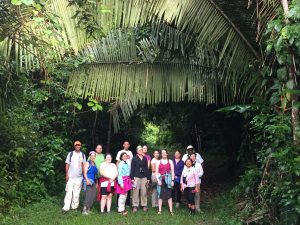
Out of the jungle and our way to Southwater Caye!

Out of the jungle and our way to Southwater Caye!
We are heading to the Jaguar Preserve and don’t expect to be able to connect again until Sunday night!
One of the many amazing things about Belize is how awake and ready we are to hit the ground running when that 5:30am alarm goes off!
We began our day with a walk through the Belize Botanical Gardens, where we saw Jackfruit, Ginger, Tamale leaves, Angel’s Trumpets and the Lodge’s Solar Panels! After breakfast we were lucky enough to see Collared Aracari Toucans by the deck!
We then traveled to Xunantunich where we hiked on and up Mayan ruins. It was breathtaking! We explored the residential areas for nobility — El Castillo (“the castle,” in Spanish) is 130 feet above the plaza floor. It is the second-tallest building in Belize. The Mayans were at their peak around 500 or 600 A.D. Approximately 7–10,000 people lived at Xunantunich, with around one million inhabiting the country.
After an awesome morning, the day just got better!
After lunch we grabbed life jackets and paddles and met at the beach on the Macal River. We jumped in canoes and spent several hours floating and paddling (about seven miles). The wildlife was plentiful and we were surrounded by bird noises, iguanas, rapids, bats and teachers talking.
When we got off the river we were treated to visit to a local ice cream joint! So delicious! We had all kinds of flavors new to us — sour sop, sweet corn, and crab. Also flavors we knew such as coconut, pineapple, chocolate, etc.
We headed back to DuPlooys to learn about figs and get ready for dinner!
Tuesday — The day begins at “0-dark 30.” Even thought most of us were up before 4am, everyone seemed to be awake and cheery. Liz saved the day on our first flight by responding to a medical emergency. GO LIZ! Happy to report the passenger who fainted is fine.
We landed in Belize, met Nathan (our guide), Bruce (our bus driver) and Nora and Armin (our Belizean educators). Our first stop was to meet former participant Ryan Elijio!
On to the Community Baboon Sanctuary, where we saw a mom and baby Howler Monkey. They came to say “Hi.” Mom came first and we were amazed that she came close enough to touch, BUT THEN the baby followed in her exact same path, and we were so close we felt as if it saw our souls! We learned the names of many plants and tasted cashew fruit. We also learned they make wine from it!
We went on to duPlooy’s Jungle Lodge where we enjoyed a delicious dinner and a night walk where we found a sleeping Basilisk Lizard down by the Macal River.
Wednesday — We took a bird walk where we spent much of time looking at plants and insects. We tasted Velvet Apples (Diospyros discolor) and had fry jacks for breakfast. We then drove to the Mountain Pine Ridge where we hiked to the Domingo Ruiz Cave. We found a Peanut-headed bug on a tree and got to see its beautiful eye spots.
Jason was “done for the day” with that find!
Later in the cave we saw a baby bat snuggled next to its mom and we could hear their wings when we sat in the pitch dark. We later sang in the dark because it sounds so good in the cave!
The Rio Frio Cave was an amazing experience and contrast to Domingo Ruiz Cave. Rather than being deep and subterranean, it was huge and open to a river on both ends! And we watched in amazement as a katydid ATE a cicada!
We finished out the day playing in the waterfalls at the Rio On Pools, and returned to duPlooy’s in time for quick showers and a meeting before dinner. Then, off to a night walk topped off by looking at insects attracted to a sheet and bright light that Jason set up.
And RACHEL wanted to send a BIG birthday greeting to her mom!
The countdown is on.
Twelve teachers from across the state are packing their bags with everything they need for the upcoming Tropical Ecology Institute. Convertible quick dry pants, umbrella, camera, binoculars, water bottle, rain gear, sunscreen, snorkel gear … and the list goes on and on. It is at this point that we all begin to wonder “Will all of this fit into my duffel?” And yet every year, somehow it does.
Thirty-one years ago the first Tropical Ecology Institute for educators took place. While today’s trip takes advantage of advances in technology, improved roads, and access to new locations in Belize, at its heart, is it the same experience. It is designed to give educators a first-hand experience in tropical ecology, which will improve their ability to teach students across North Carolina. It is not a vacation in the tropics, it is an immersion in the tropics. While participants gain new factual knowledge, they also develop a deep appreciation for Belize and her people, and learn new skills to take back to their classrooms. Teachers return refreshed, inspired and more committed to improving science education across the state.
We cannot wait for it to begin.
Today is the end — the end of our time together in Maine and New Hampshire. The end of our time experiencing these wild landscapes. The end of sharing our daily experiences with each other. The end of achy feet and sore muscles and smelly clothes. The end of our Educators of Excellence Institute to New England. But, as the saying goes, every end is a new beginning. The beginning of our memories. The beginning of our planning and collaborations. The beginning of our lifelong friendships. The beginning of sharing our stories and pictures and inspirations with our students and friends and families. We are excited for what lies ahead.
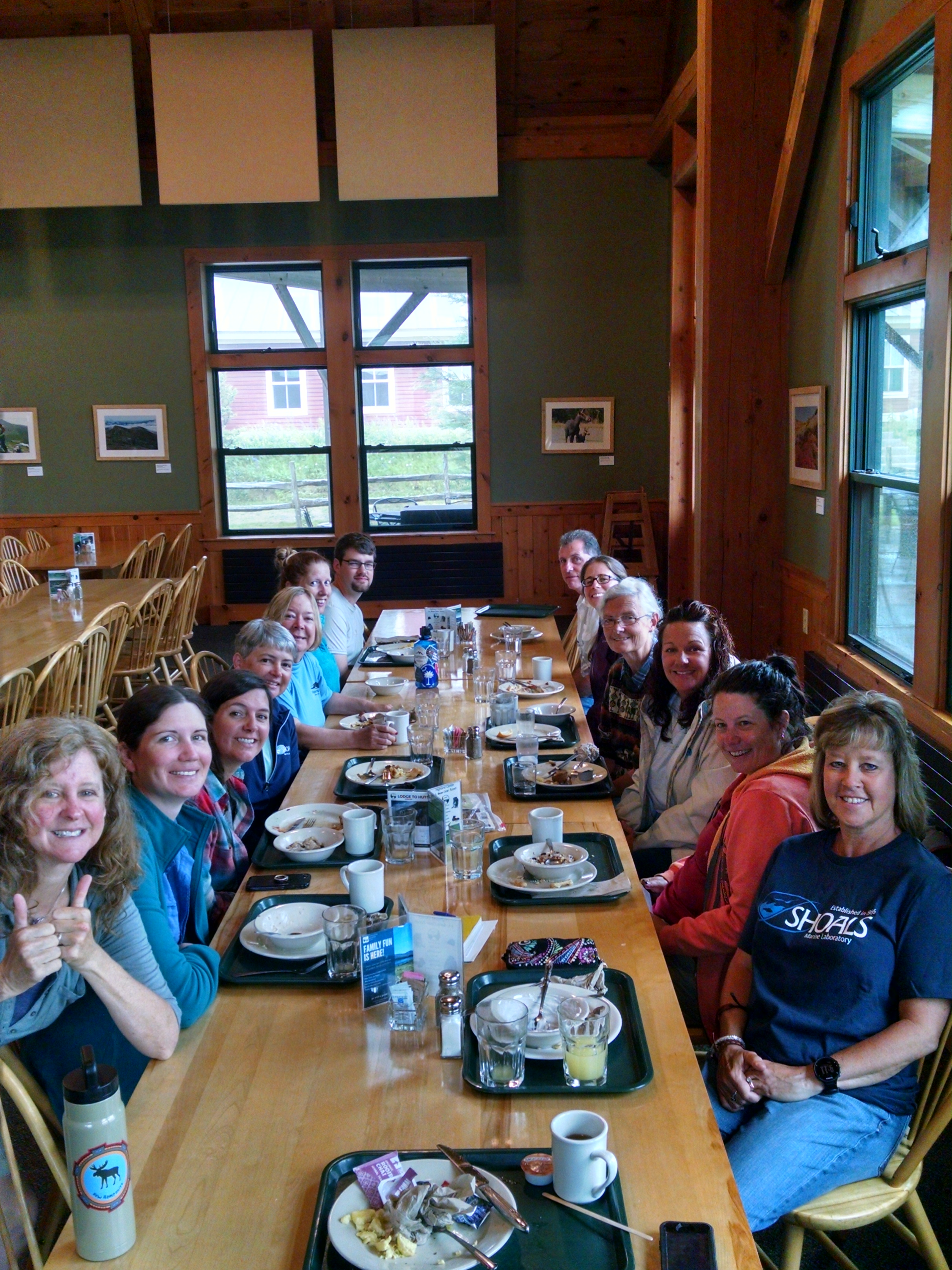
Grateful to be enjoying our big breakfast together as the rain pours down outside.
As the rain poured down outside (and we all expressed deep gratitude that we made it off the trail before this weather system moved into the area!), we gathered for a well-deserved, hearty breakfast at the AMC Highland Center. We didn’t have to rush our eating in order to have time to stuff everything in our packs and lace up our boots for another long hike. This morning was different. This morning as we gathered together we could take our time — time to reflect on what we will take away from this trip and how we will use these experiences in our classrooms. It was inspiring to be able to brainstorm and share our knowledge with one another, and to see creative sparks fly among so many passionate educators all in one room. How bittersweet it was, knowing that this would be the last time (until our reunion in November) that our “trail family” would all sit in a circle, sharing time together.
On our way to the airport, we shared our last meal at the Gypsy Cafe where we talked about our regrets and our appreciations. It’s important to verbalize the things we may have regrets about, to acknowledge them so we can leave them behind and move forward in positivity — maybe we wished we looked at our watches or phones a little bit less, or journaled a little bit more. Our few regrets were drowned out by waves of appreciations for each other — lots of stories of kind words, smiles, and the ready laughter that were so abundant on our trip. We feel proud of ourselves for taking risks to try new things, for being brave in difficult situations, and for the commitment we make to translate these experiences and places into opportunities for our students (and colleagues) at home. We also shared how we feel connected to this land, and invigorated by time spent in wild places. It is our hope that we can continue our adventures back home in NC and be the guides for the next generation of environmentally literate citizens, helping them to feel connected to, and compassion for, the natural world.
Our task regarding creativity is to help children climb their own mountains, as high as possible. No one can do more.
~Loris Malaguzzi
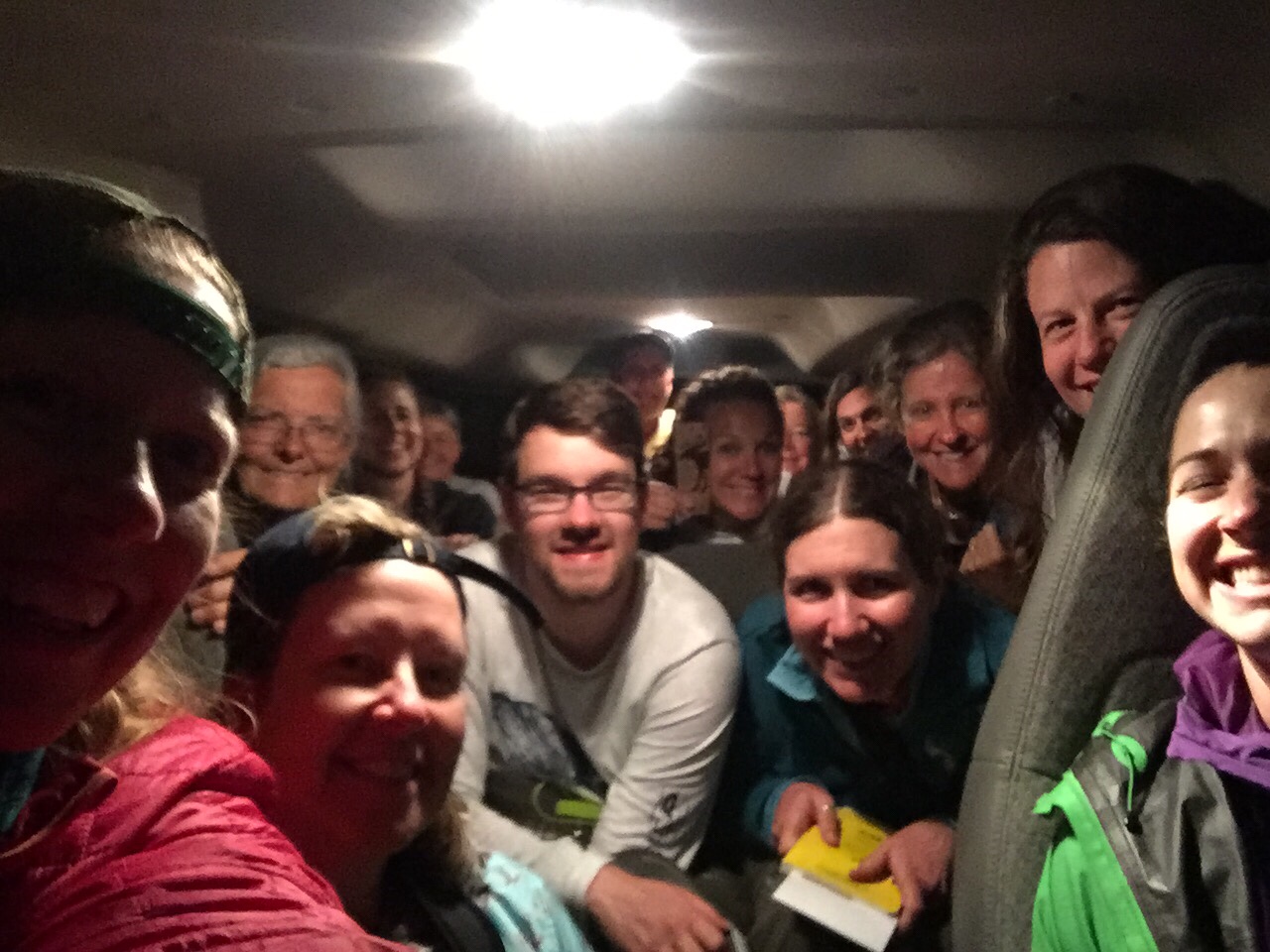
Remember that time we all piled in one car to sit on the side of the road watching a moose and her baby?
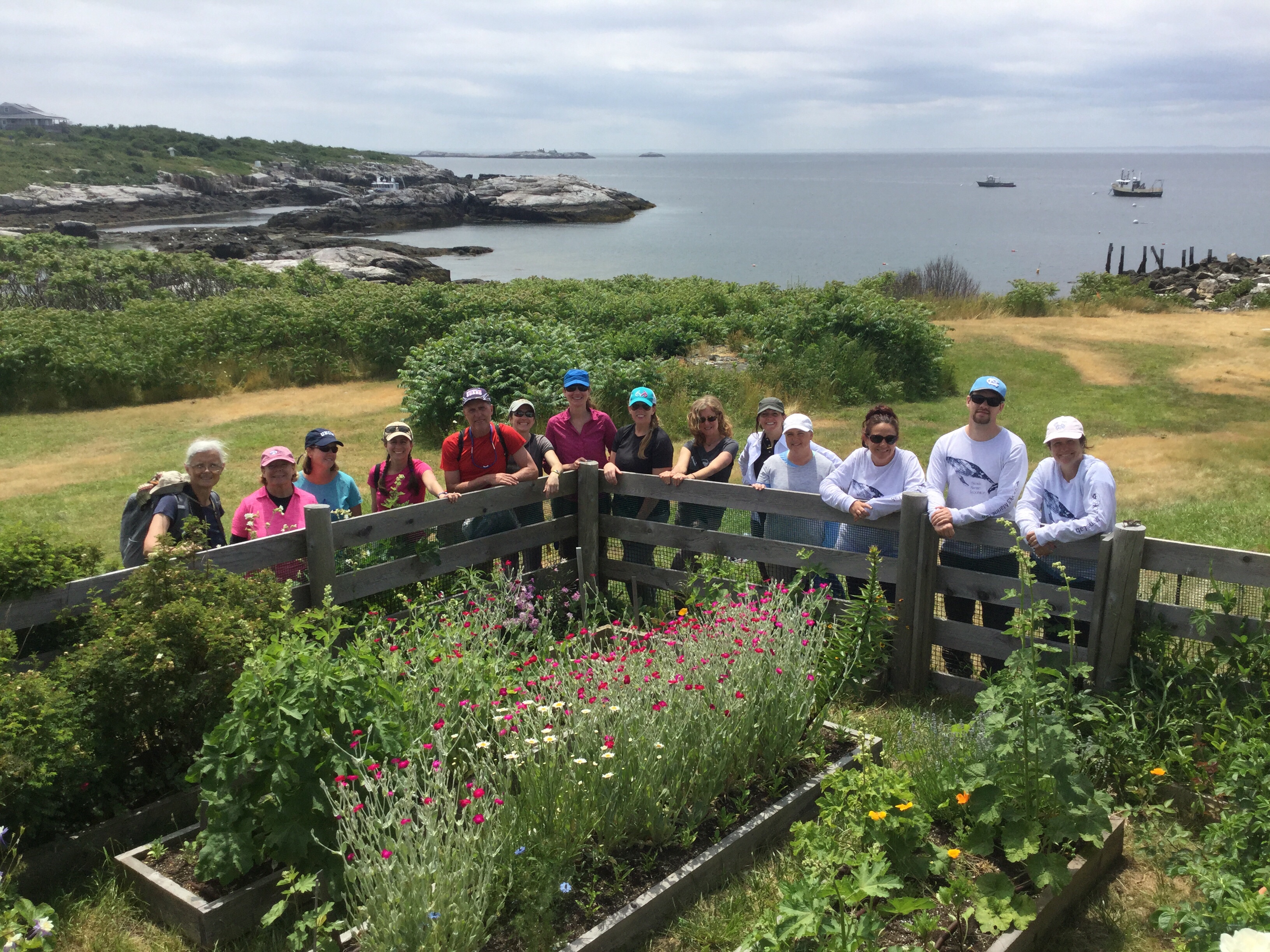
The fabulous educators of the New England Institute- view from Celia Thaxter’s garden on Appledore Island, ME.
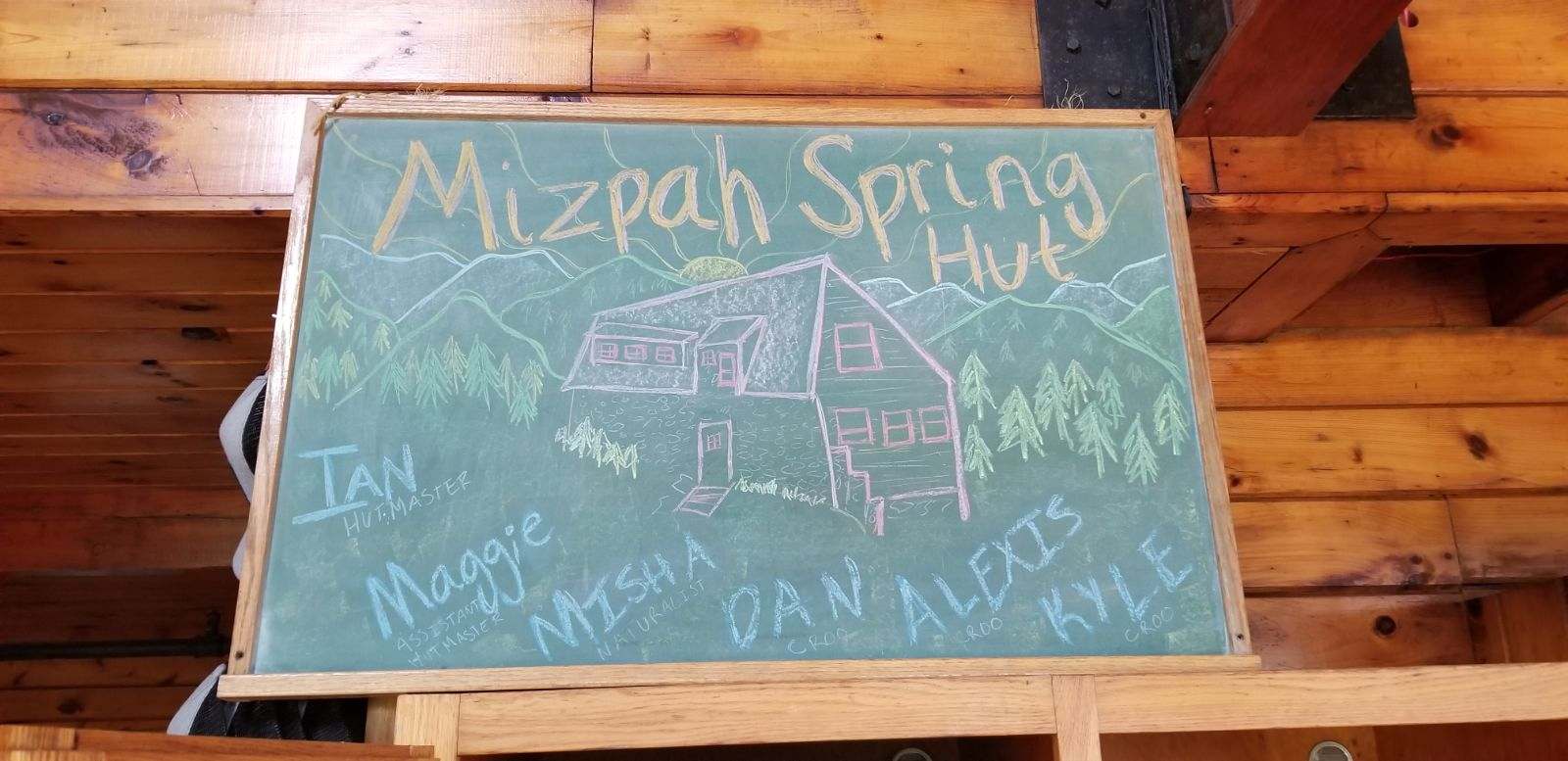
Each AMC hut prides themselves on the daily chalkboard interpretations of place, croo names, and (not pictured) the menu for the day.
We awoke this morning at Mizpah Spring Hut at an elevation of 3,777 feet. After filling our bellies with croo-made pancakes, we had a relatively easy 2.7 mile hike down to The Highlands Center Lodge at 1,900 feet. On the way, we heard many songbirds, saw some red squirrels and a chipmunk, and transitioned into the hardwood forest. In the forest, we saw several tiny American toads; they were so cute, and camouflaged perfectly with the leaf litter on the trail!
As we descended from the Presidential Range, the terrain began to feel much more familiar to us. We traded the gray, rocky landscape above tree line for various shades of green below. We were surprised to find lots of water along our path in the forms of small springs and creeks. This culminated into the highlight of our hike: a stop at Gibbs Falls. It was a lovely respite. Our team stopped and sat quietly, listening to the peaceful sounds of the rushing, cold water. The cool air surrounding the clear pool beneath the falls refreshed us as we bolstered ourselves for the final half mile of our hike.
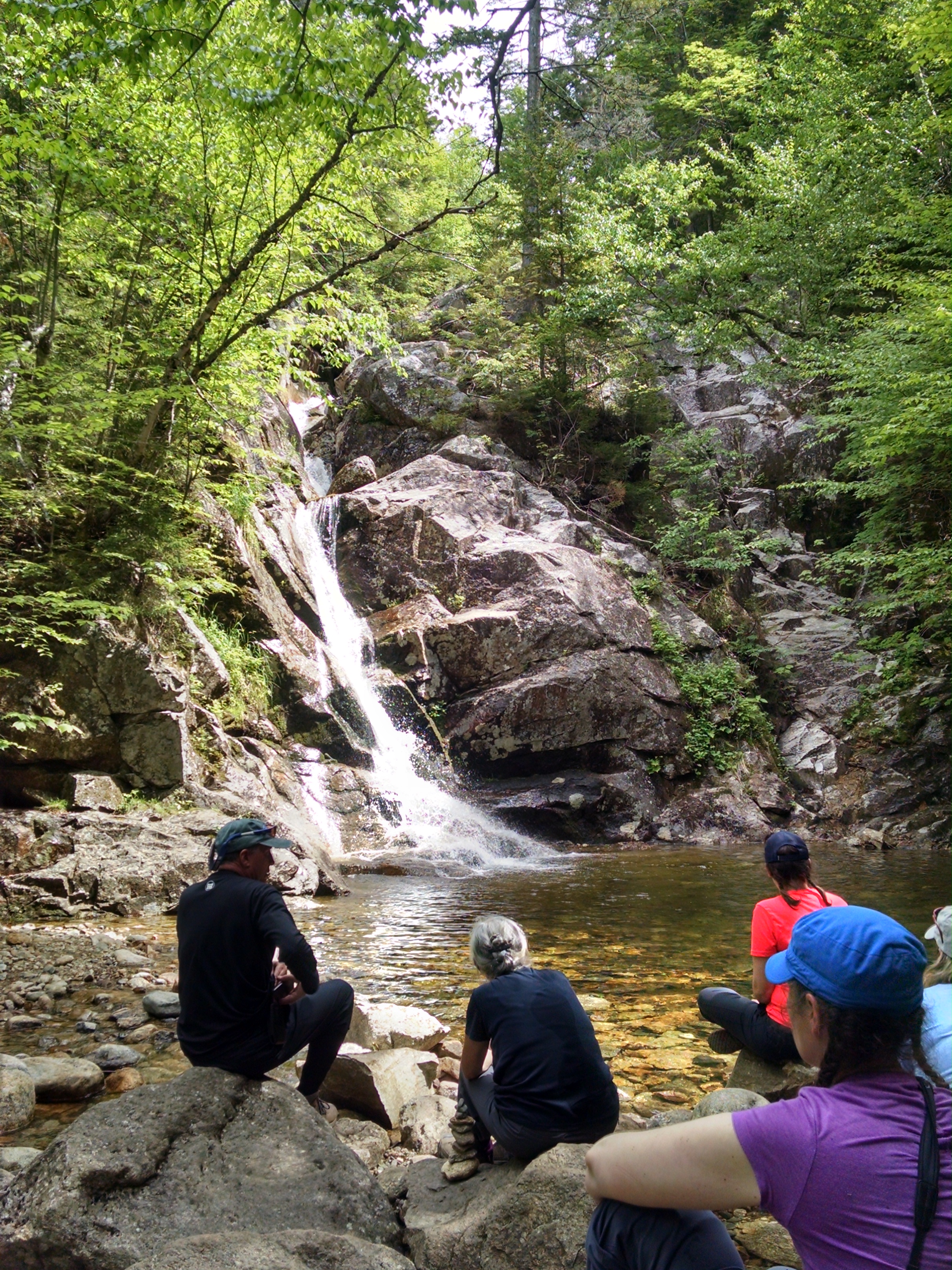
Quiet contemplation at Gibbs Falls
Before long, we began to once again hear the telltale signs of civilization. Our time on the trail ended with a sign marking the Crawford Path, the oldest continuously used mountain trail in America. As we emerged from the forest and onto asphalt, the feeling was bittersweet.
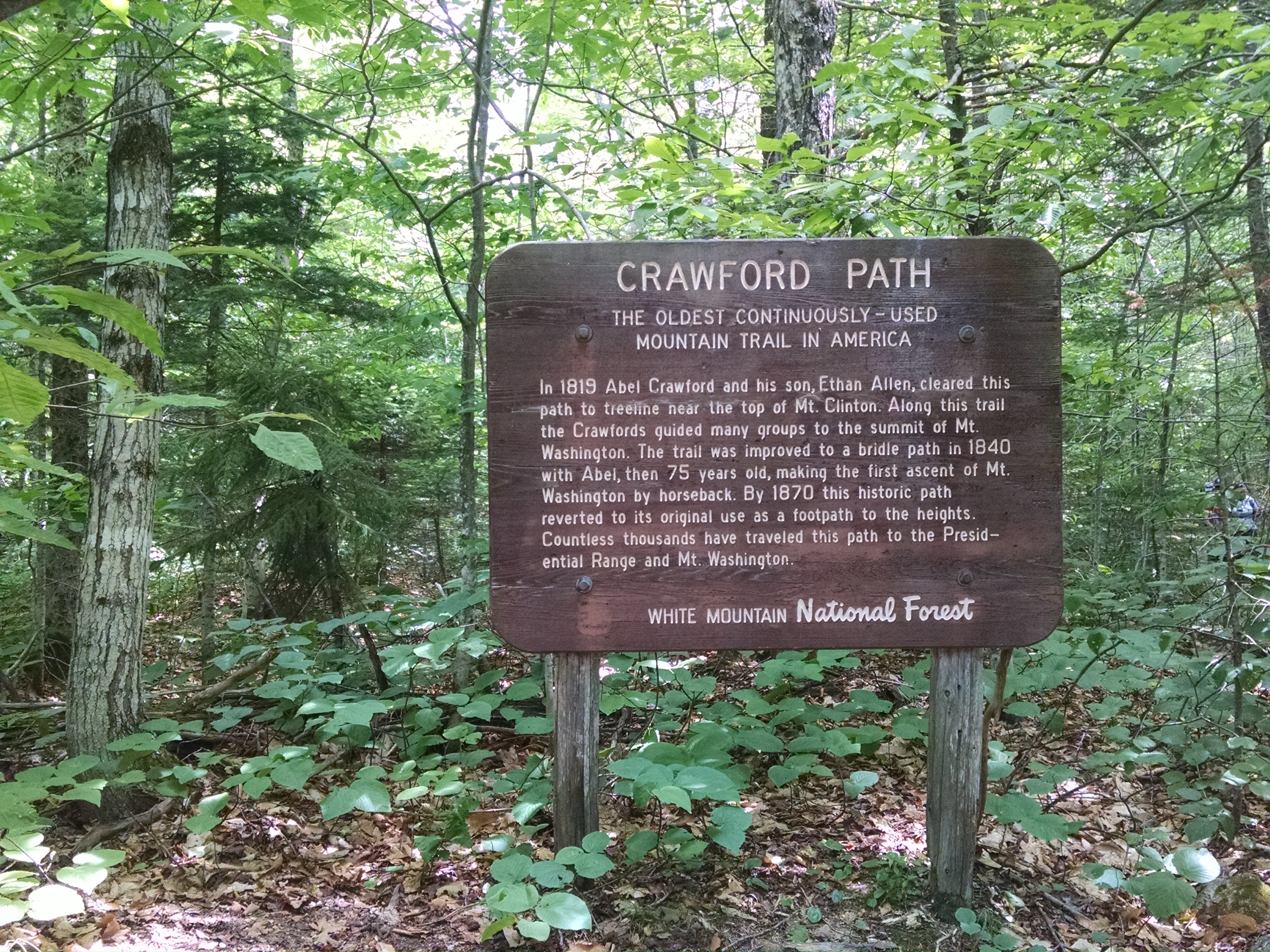
Our hike retraced historical footsteps along the Crawford Path.
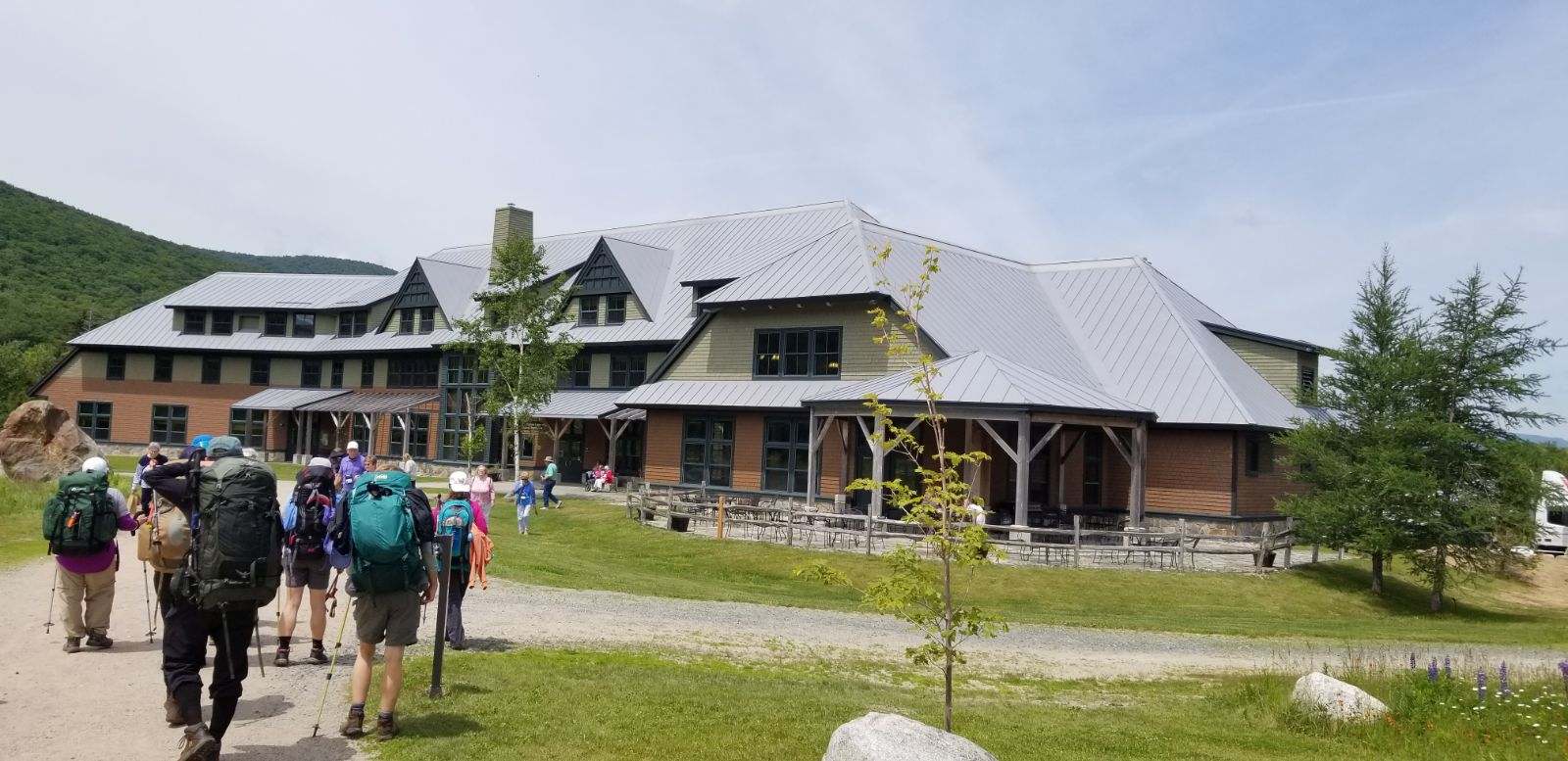
The final steps from the trailhead to the Appalachian Mountain Club Highland Center – a tasty lunch and hot showers await! (Photo: Josh Reed)
We checked into the AMC Highland Center, ate our lunch of salads, soups, and sandwiches, and then all of us made a mad dash towards our first hot shower in several days. After a bit of time to relax and reflect on the last leg of the trip, we took a stroll around Ammonoosuc Lake, a small, spring-fed body of water that is just down from the main building. Along the trail around the lake, we saw lots of wildflowers (including lupine and two different colors of lady slippers (a spring ephemeral wildflower), tadpoles, evidence of spotted salamanders, and an owl pellet.
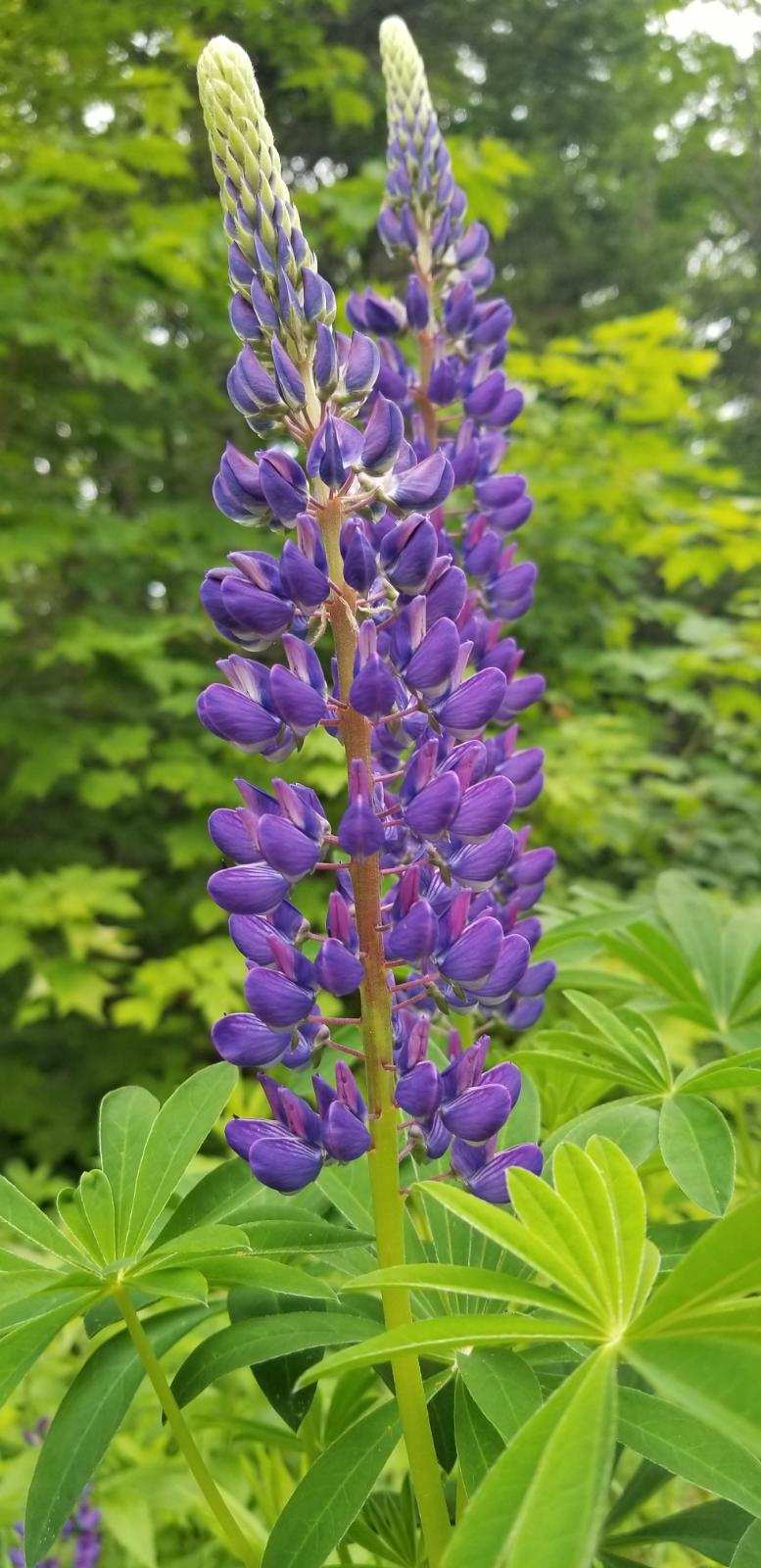
Beautiful lupine along the Ammonoosuc Lake trail (Photo: Josh Reed).
As we finished our stroll, we took the opportunity to dub one another with creative trail names. This is a common practice for through-hikers along the Appalachian trail, but a person cannot create his/her own trail name, so this turned out to be a great demonstration of our camaraderie and admiration for one another gained throughout our adventure.
As we wrapped up our final evening group meeting, we watched as the clouds turned dark, indicating a storm on the horizon. The looming dark skies contrasted with the beautiful weather our group has been thankful for throughout our many adventures this week.
We began our early morning with a fun-filled, Harry Potter-themed breakfast hosted by the Appalachian Mountain Club “Croo” (crew) at Lakes of the Clouds Hut at the base of Mt. Washington. Immediately after breakfast we began our strenuous nine-hour hike up mountains, down rocky slopes, and across alpine meadows.
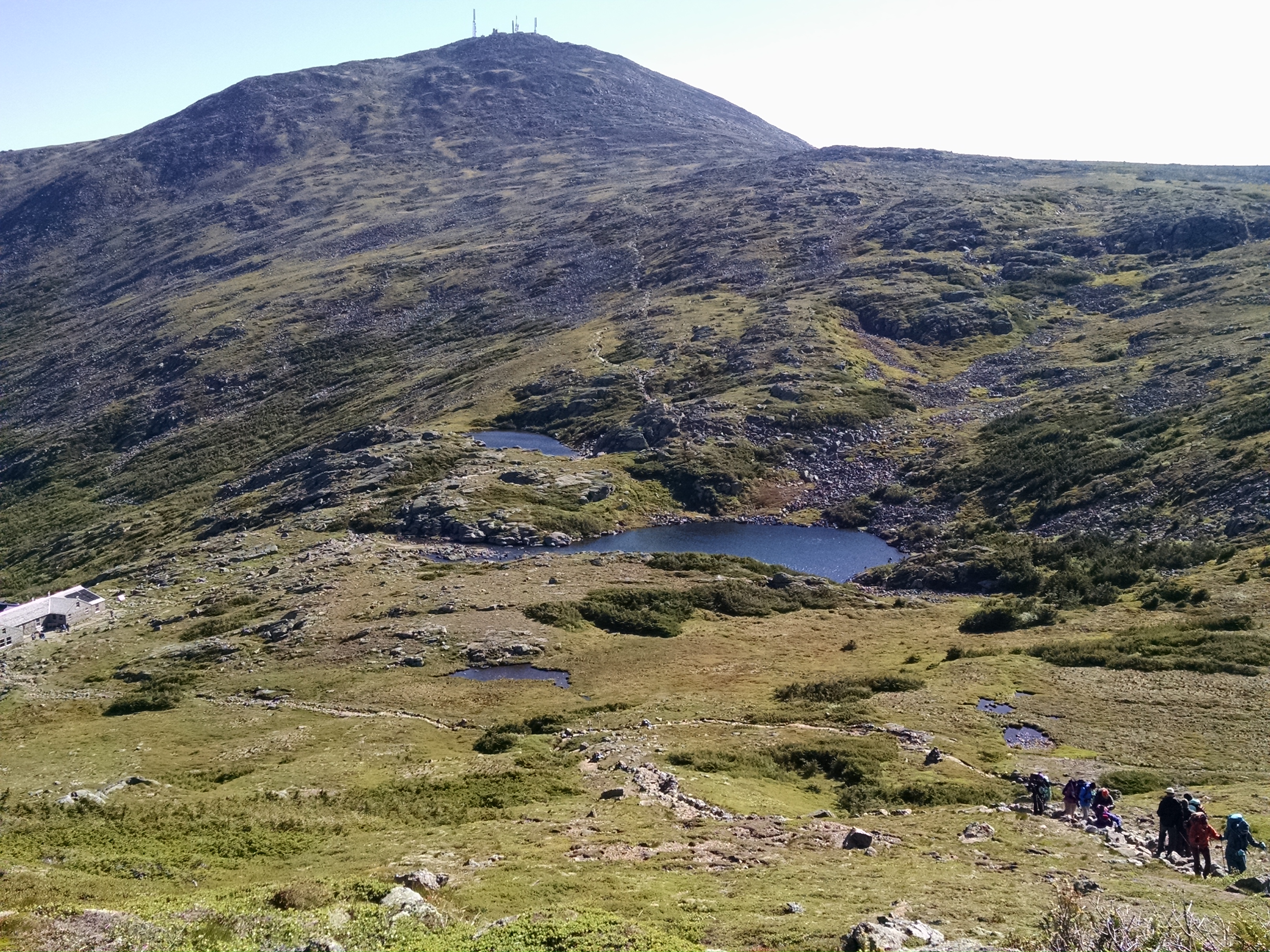
The beginning of the steep hike up from Lakes of the Clouds to Mt. Monroe (you can see the Mt. Washington Observatory behind us in the distance).
We hiked across (or around) the summits of Mt. Monroe, Mt. Franklin, Mt. Eisenhower, and Mt. Pierce, and ended our trek at Mizpah Spring Hut. We worked tirelessly as a team all day — supporting each other with gear, shoulders to lean on, and words of encouragement.
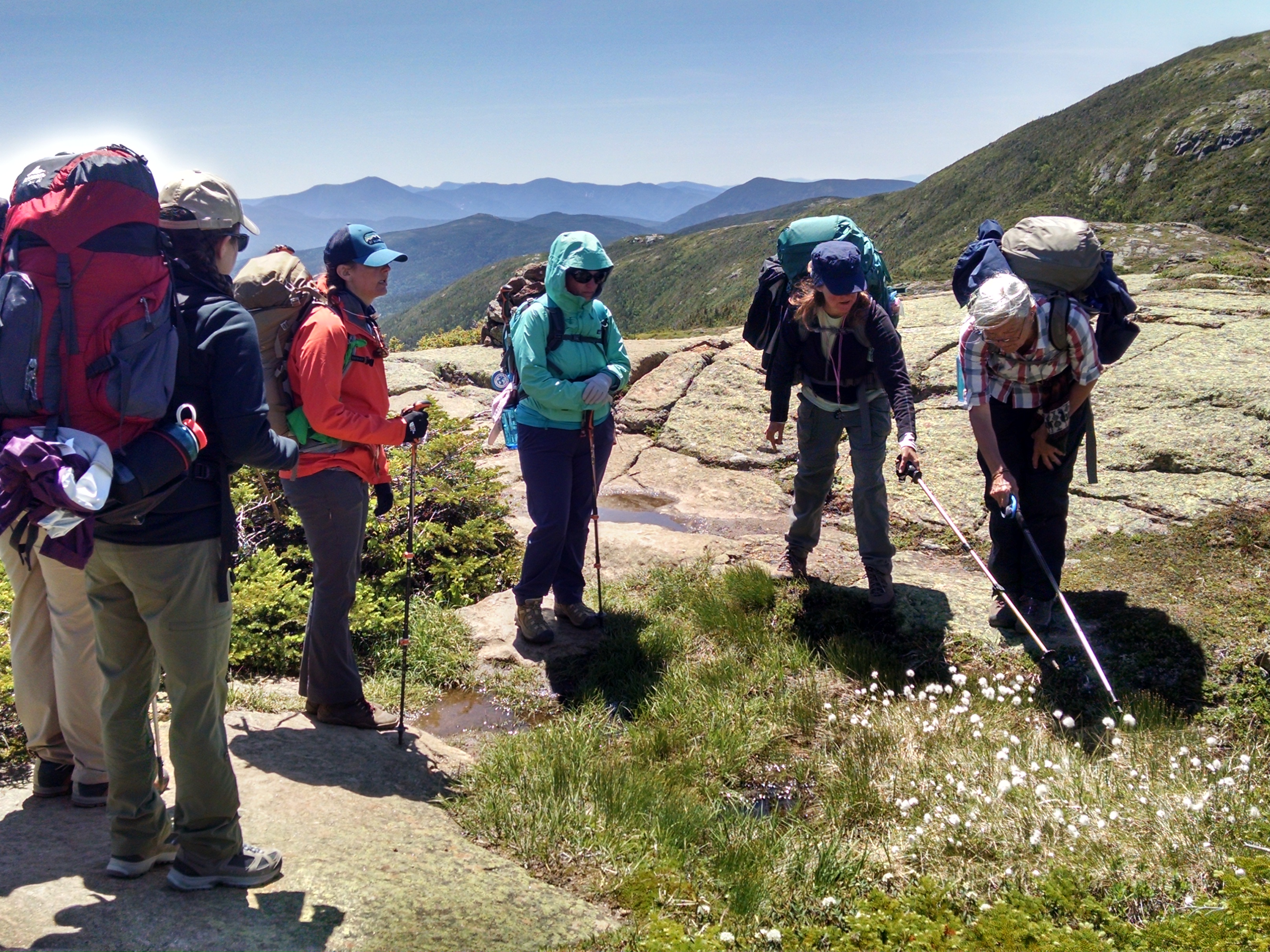
Frances shares her passion for plants with us when we discover a patch of “bog cotton” along the trail. Now it is one of our favorite plants from this new environment!
Our group ended the day with a delicious meal and tired feet. Dinner was filled with laughs and a great sense of accomplishment. As we fall asleep tonight (which won’t take long!), we can reflect back on all the different habitat types we hiked through — from the treeless alpine zone, to krummholz (trees stunted in their growth due to extreme weather conditions), to the boreal forest. Tomorrow is a new (and shorter!) day and we will hike down into the northern hardwood forest.
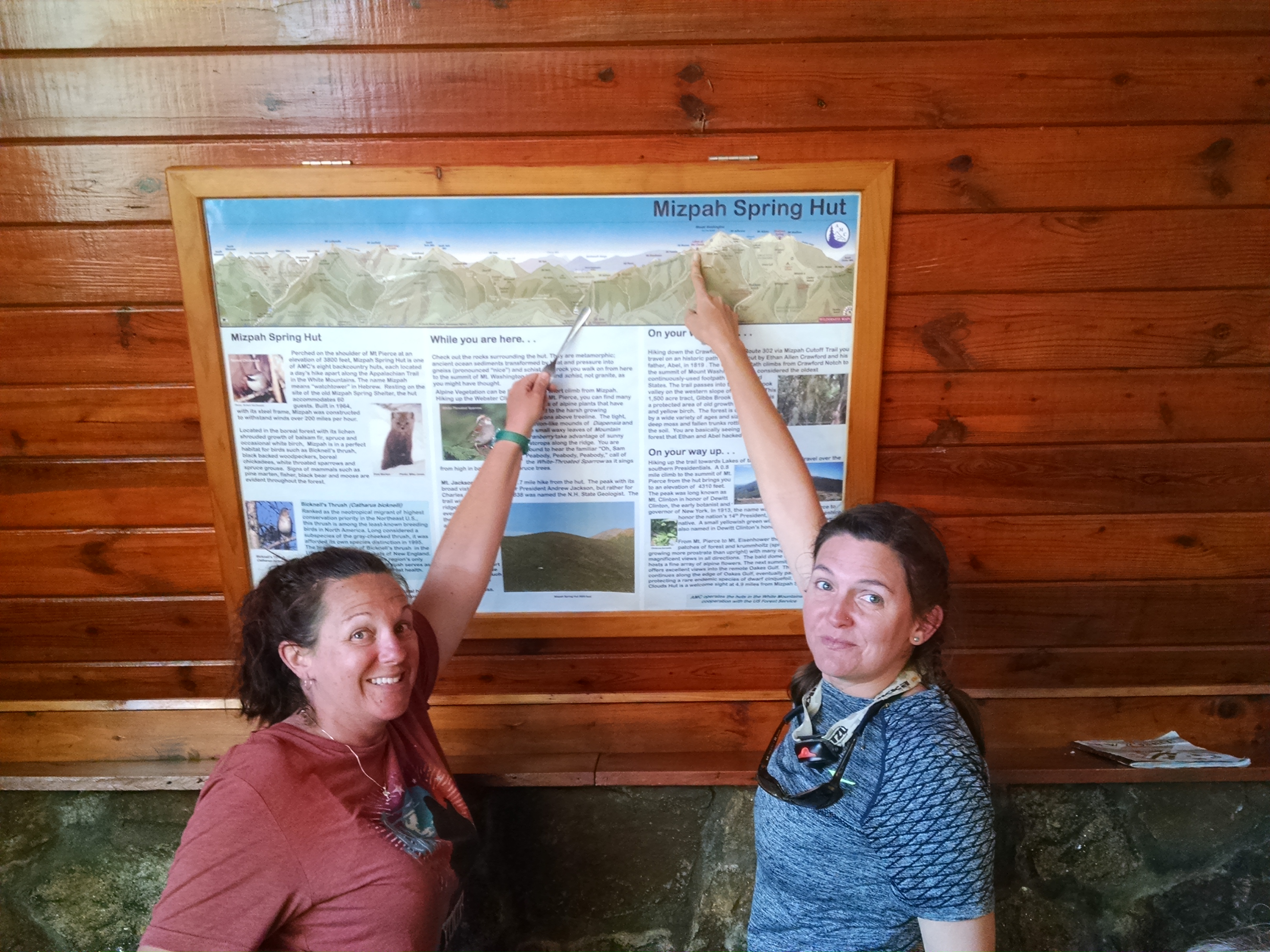
Look how far we’ve come! Five miles (9.5 hours) later, we arrive at our destination- Mizpah Spring hut.
Today was a day of surprises. We ascended Mount Washington this morning, and were scheduled for a visit to the Alpine Garden. This was not your ordinary garden.
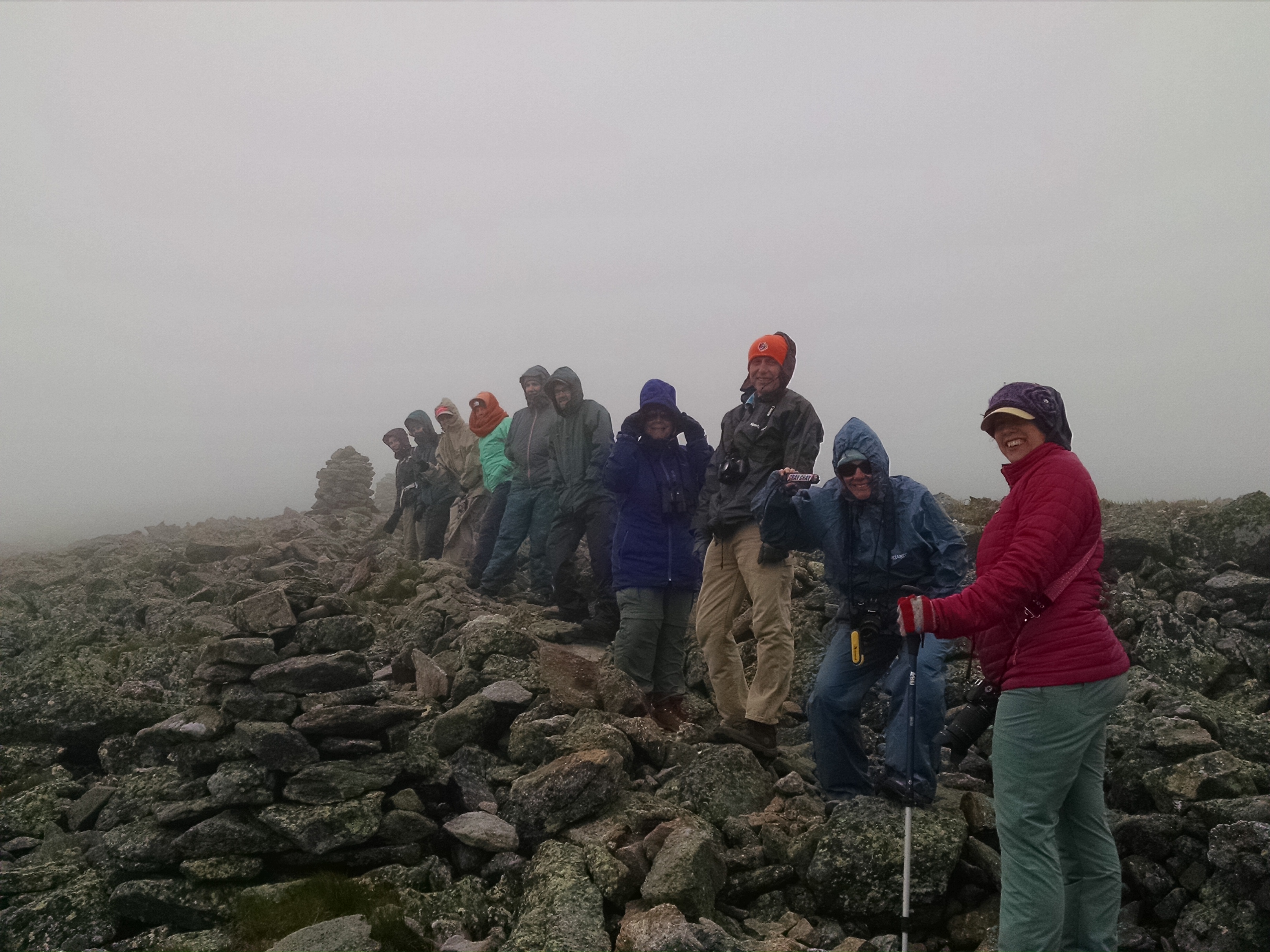
The Alpine Garden (almost): not many readily visible flowers unless you look very closely! Renee holds a Snickers bar with a wrapper that says “cray cray” which pretty much epitomized the weather conditions we experienced today.
Instead of 85 degrees and sunshine, this garden thrives in 45 degrees and lots of wind. Instead of a lush meadow full of flowers, we found rocks. Lots of rocks. But if we looked closer, we could see some tiny, tenacious, treasures — miniature alpine flowers like cranberry (which we sampled, and we can verify that they tasted like craisins), sandwort and Diapensia (a relative of our pixie moss). Mostly it was very cold, very windy and very unexpected.
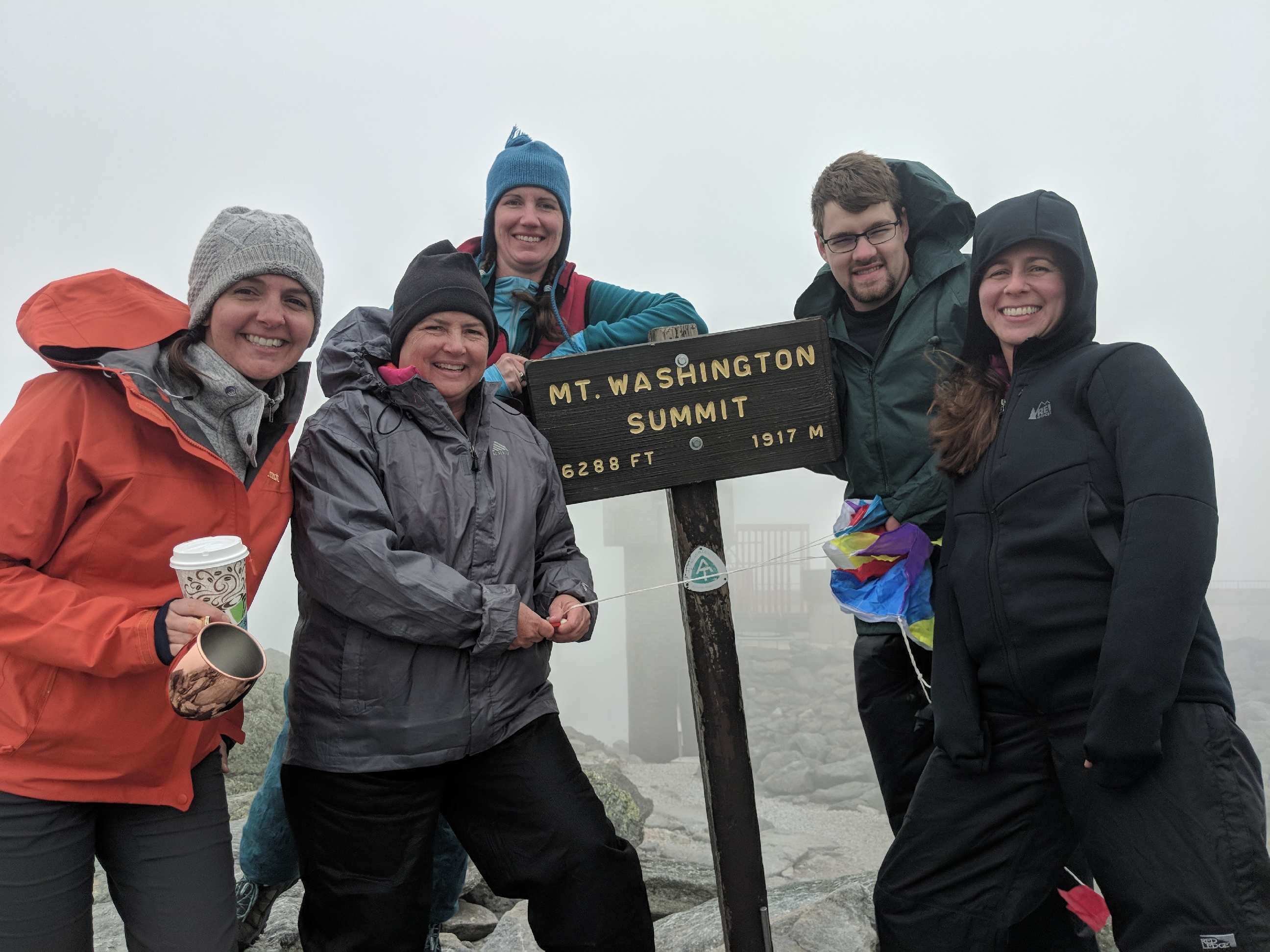
The summit of Mount Washington – site of the highest human-recorded land wind speed — 231 mph.
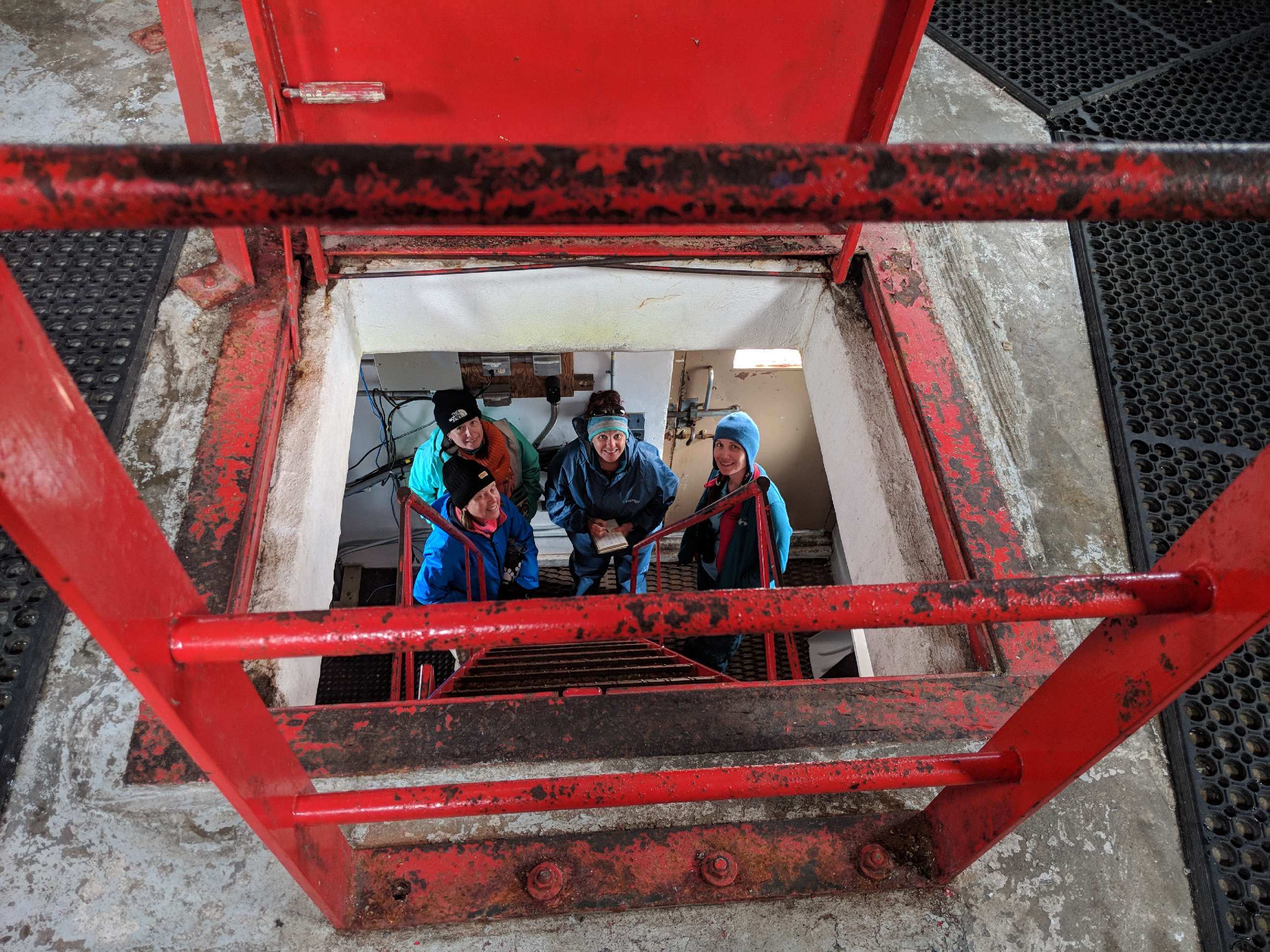
Looking down from the inside of the Observatory tower.
Once at the top, we got treated to a behind-the-scenes tour of the Mount Washington Observatory. It was so neat to see how all of our data that appears at the click of a mouse is painstakingly collected by lots of instruments and dedicated souls.
We also met the observatory cat named Marty!
On our way down, with the help of AMC Air Quality Scientist Georgia Murray and her intern Lauren, we learned about some of the citizen science monitoring that is happening with the alpine flowers. We will be able to help collect observations the next few days. Documenting the phenology (timing of plant stages) helps keep a record of changes in timing as the climate warms.
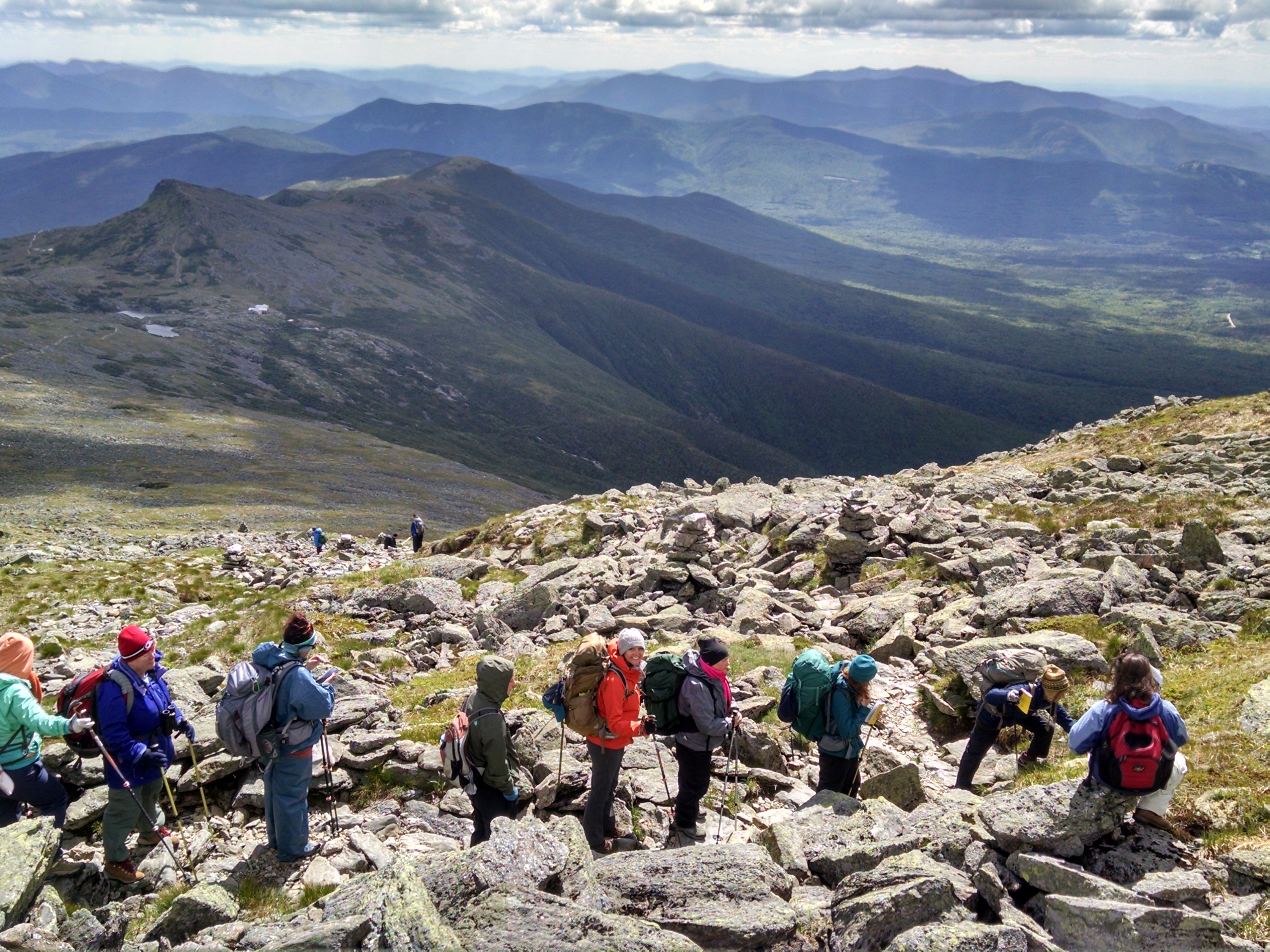
AMC Air Quality Scientist Georgia Murray (with her back to the camera in a red backpack) teaches us about monitoring phenology of alpine wildflowers. In the distance you can see the white roof of our destination hut, Lakes of the Clouds.
Though it wasn’t far, the rocky, downhill trail was a challenge for many of us, but we helped each other along the way and made it to Lakes of the Clouds Hut safely in time for dinner!
Tomorrow we have our longest-mileage day ahead of us, and we don’t anticipate having cell signal to post the blog until Wednesday.
We will fall asleep tonight after a spectacular sunset with the fading glow on the horizon.
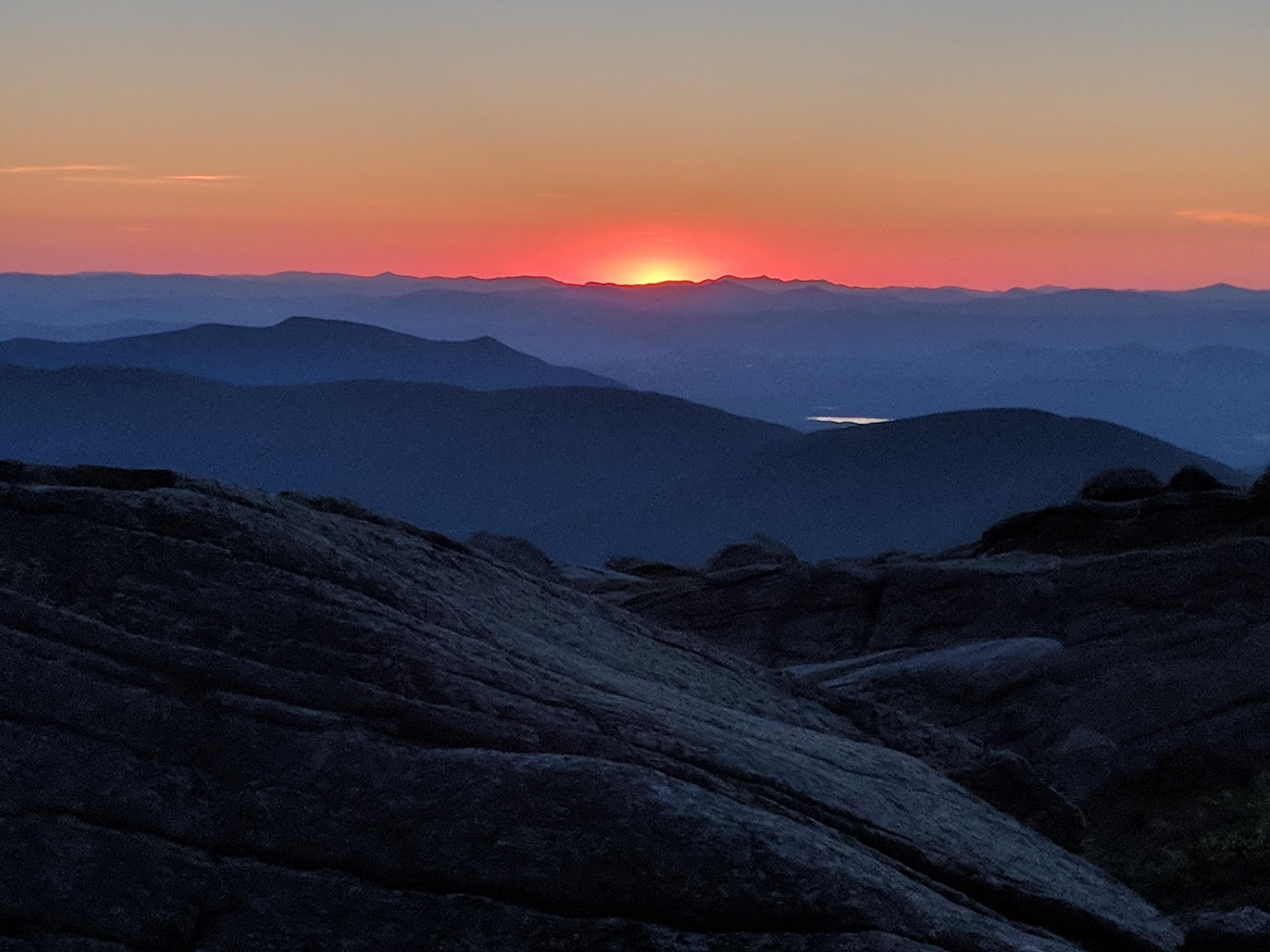
Sunset from Lakes of the Clouds hut.
Copyright 2018 NC Museum of Natural Sciences